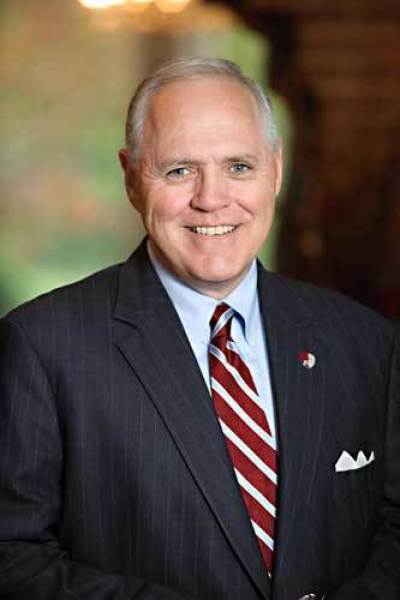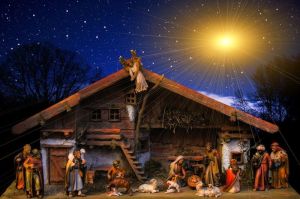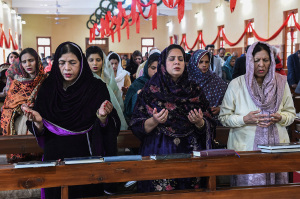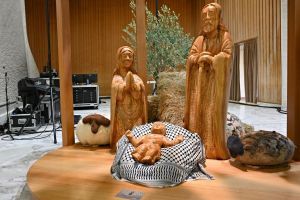The other threat in a national emergency

There is an unsettling insouciance fermenting in America: a casual acceptance of centralizing governmental powers. Don’t get me wrong. I applaud the wise and necessary steps that the President has taken in this unprecedented public health crisis. Like so many of my countrymen I delight in seeing the all-too-rare vision of, e.g., the liberal Democratic Governor of the great State of California working hand-in-hand with a Republican White House. Federalism at work for the good of all in such a dangerous hour is nothing short of inspiring. Not since World War II has our nation galvanized public and private resources for a historic demonstration of wartime determination to defeat an enemy. These anxious weeks have tested our national will. In so many ways we have born the battle as one People, with heroes and heroines in lab coats and scrubs, with badges, in camouflage, at check-out counters, and sporting truckers’ caps, leading the way. Unless mistaken, I have sensed a strengthening of churches in this pandemic. Pastors leading mid-week Bible studies, and evening hymn-sings over Zoom remind many of an America we thought was long-gone. Palm Sunday liturgies from Anglican, Lutheran, and Presbyterian, converge with Easter services from Methodist, Baptist, and every imaginable expression of Independent congregations, turning Facebook, YouTube, and Vimeo into veritable Christian broadcasting networks. Indeed, there has been so much good, and so much unity, that we might have missed the lengthening shadow of an old enemy of the Church: Statism. Statism is a philosophy and innate predilection of governments — no, a deadly virus itself — that offers security for liberty. Statism is a “beast” of Revelation that persecutes the Church. Dutch Reformed commentator, Dr. William Hendriksen (1900-1982) wrote, “The beast that comes up out of the sea is Satan’s persecution of Christians, embodied in world governments and directed against the bodies of believers” (Hendriksen, 1998. p. 26). The beastly powers of Statism are a constant danger to the Church and to the God-given rights of human beings. History demonstrates this fact.
Friedrich A. Hayek (1899–1992), Austrian-born Nobel-prize-winning economist, who became a British subject, after fleeing the threat of Hitler’s maniacal conquest, joined with the entire Free World to applaud and marvel at the indispensable leadership of Prime Minister Churchill in those years when Great Britain stood alone against what seemed to be an indestructible German National Socialism. However, it is said that Dr. Hayek counseled the courageous Churchill that while centralization of powers served Britain well in the great national emergency the same consolidation of powers in peacetime would cripple the country. He penned his most famous work in 1944: The Road to Serfdom to describe the tragic path to national poverty as a result of the unchecked State. Hayek’s premise is historically and undeniably proven: the abdication of one’s liberty to the State in exchange for a supposed security is a regrettable reoccurrence in the story of human history. The exchange is a sucker’s deal. The State and the elite who run it are rewarded at the expense of an imprisoned population.
Our system of English law was shaped by centuries of the ebb and flow of the interminable encroachment of Statism — centralized power in the government — and the indomitable pursuit of “life, liberty, and the pursuit of happiness”. The longing for self-determination might be suppressed for a sorrowful season, but like the mythical Phoenix, the human spirit invariably takes flight from the bondage of dictators, despots, and collectives. Though too late for the generations who endured the bondage, a new burst of freedom eventually appears like the hopeful, golden glow of a morning sun after a long, gray winter. As Churchill reminded us in his History of the English-speaking People’s (1900).King Alfred’s Law (911) was based on Scriptural principles of government, and guaranteed the individual his God-given rights. In 1066 the Norman regent, William the Conquerer, invades England. Alfred’s law is abandoned for the calculated promises of the Norman’s protection. The degradation of human rights would endure until the missteps of King John and landholders’ demands for limited government resulted in the Magna Carta (1215). Again, the usurping of the People’s representatives in the House of Commons by Charles I led to the English Civil War. The great Scottish Presbyterian minister and professor of divinity, Samuel Rutherford, wrote Lex, Rex (“The Law is King”), and by his compelling arguments from the Bible, English Law’s long history of rule by the consent of the governed was upheld. So, then, these principles of liberty soon flowered in the United States Constitution.
The great legacy of English Law is built upon the Gospel of Jesus Christ: “And you will know the truth, and the truth will make you free” (John 8:32). “Now the Lord is the Spirit, and where the Spirit of the Lord is, there is liberty” (2 Corinthians 3:17). “If the Son therefore shall make you free, ye shall be free indeed” (John 8:36 KJV).
The COVID-19 crisis is a valid example of how the People grant rights to their elected representatives to provide crucial centralized leadership in certain emergencies. I applaud the President and so many governors around the Union in exercising leadership with wisdom, balancing rights with public health, and by Presidential proclamation, with national prayer (March 14, 2020). There are, however, ominous Orwellian signs among us that a new kind of contagion lurks. The Daily Caller reported (White, 2020) that Elizabeth, New Jersey major J. Christian Bollwage “is deploying drones from Chinese-based company DJI” to monitor American citizens to ensure social distancing protocols. Violators will hear a menacing robotic voice from overheard, “Stop gathering, disperse, and go home” (White, 2020). How very troubling. Conversely, the Governor of South Dakota has not allowed public health to diminish her oath to liberty: Governor Kristi Noem was resolved in her position: "I took an oath when I was in Congress, obviously, to uphold the Constitution of the United States. I believe in our freedoms and liberties.”
So, there is hope, always hope. But freedom requires vigilance. Just as we do not receive Christ as Savior and then forget the Bible, worship, prayer, fellowship, and witness — the hallmarks of discipleship — so, too, we must guard the freedoms won at so high a price.
Surely, as the days wear on, and the sunlight of a brighter season begins to eviscerate the deadly virus among us, let us resist any pressures to cede liberties in exchange for personal security.
“It was for freedom that Christ set us free; therefore keep standing firm and do not be subject again to a yoke of slavery” (Galatians 5:1).
References
New American Standard Bible Copyright ©1960, 1962, 1963, 1968, 1971, 1972, 1973, 1975, 1977, 1995 by The Lockman Foundation, La Habra, Calif. All rights reserved.
Churchill, Winston (1900). A History of the English Speaking Peoples. Vol. l. Dod, Mead, & Co.
Federer, W. J. (2013). Change to Chains: The 6000 Year Quest for Global Control. Amerisearch.
Hayek, F. A. (1944). The Road to serfdom. Routledge.
Hendriksen, W. (1998). More Than Conquerors: An Interpretation of the Book of Revelation. Baker Publishing Group. https://books.google.com/books?id=Zb5QEOI4XbQC
Stanley, E.G. (1997). “On the Laws of King Alfred: The End of the Preface and the Beginning of the Laws,” in J. Roberts, J. Nelson, M. Godden (eds), Alfred the Wise (1997). Cambridge.
Chris White. (2020, April 18). One US City Is Deploying A Chinese Firm’s Drones To Police Americans Who Are Not Social Distancing. Daily Caller. https://dailycaller.com/2020/04/18/china-coronavirus-surveillance-drones-dji-new-jersey/
Michael A. Milton, PhD (University of Wales) is a Presbyterian minister (PCA, ARP), an educator, author of more than thirty books, with numerous popular and peer-reviewed journal articles, and a Chaplain (Colonel) US Army retired. Dr. Milton holds advanced degrees from Wales (PhD), Knox Seminary (MDiv), and the University of North Carolina at Chapel Hill (MPA). He earned a post-doctoral certification in higher education teaching from Harvard University. Dr. Milton serves as Provost and a professor at Erskine Theological Seminary. He is also the president of the D. James Kennedy Institute of Reformed Leadership. He and his wife, Mae, reside in North Carolina.




























